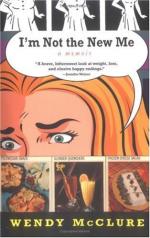“If the bank really be a grievance, why is it that no one of the real people is found to ask redress of it? The truth is, no such oppression exists. If it did, our people would groan with memorials and petitions, and we would not be permitted to rest day or night till we had put it down. The people know their rights, and they are never slow to assert and maintain them when they are invaded. Let them call for an investigation, and I shall ever stand ready to respond to the call. But they have made no such call. I make the assertion boldly, and without fear of contradiction, that no man who does not hold an office, or does not aspire to one, has ever found any fault of the bank. It has doubled the prices of the products of their farms, and filled their pockets with a sound circulating medium; and they are all well pleased with its operations. No, sir, it is the politician who is the first to sound the alarm (which, by the way, is a false one). It is he who, by these unholy means, is endeavoring to blow up a storm that he may ride upon and direct. It is he, and he alone, that here proposes to spend thousands of the people’s public treasure, for no other advantage to them than to make valueless in their pockets the reward of their industry. Mr. Chairman, this work is exclusively the work, of politicians—a set of men who have interests aside from the interests of the people, and who, to say the most of them, are, taken as a mass, at least one long step removed from honest men. I say this with the greater freedom, because, being a politician myself, none can regard it as personal.”
[Illustration: Old second Presbyterian church, Springfield, Illinois.
During the special session of the legislature convened in the fall of 1839 (the first one held at Springfield), the House of Representatives occupied this church, the State House being unfinished. At the short special session which opened November 23, 1840, the House first went into the Methodist church, but on the second day Representative John Logan (father of General John A. Logan) offered a resolution “that the Senate be respectfully requested to exchange places of convening with this House for a short time on account of the impossibility of the House discharging its business in so small a place as the Methodist church.” This was adopted, and the House moved over to the Second Presbyterian church. At this special session the Whigs were interested in preventing a sine die adjournment (because they desired to protect the State bank, which had been authorized in 1838 to suspend specie payment until after the adjournment of the next session of the General Assembly), and to this end they sought to break the quorum. All the Whigs walked out, except Lincoln and Joseph Gillespie, who were left behind to demand a roll-call when deemed expedient. A few were brought in by the sergeant-at-arms. Lincoln and Gillespie, perceiving that there would




